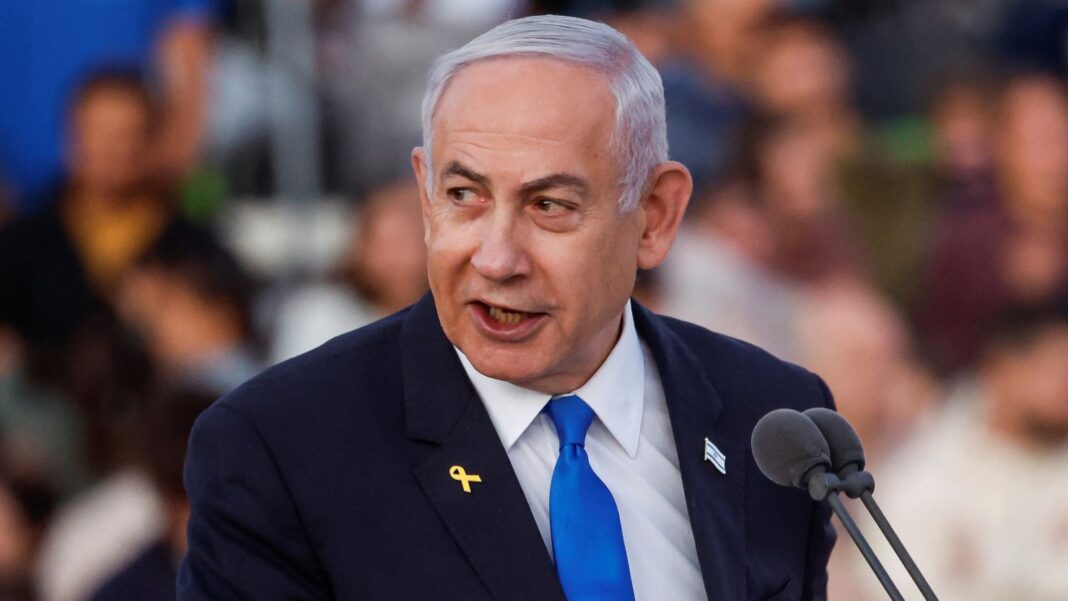Attack on Netanyahu’s Home in Caesarea
On Saturday, two flash bombs were fired towards Israeli Prime Minister Benjamin Netanyahu’s residence in Caesarea. The bombs landed in the garden, but neither Netanyahu nor his family was present at the time. Thankfully, no injuries or damage were reported. However, the incident has raised serious concerns about security and the growing threats to Israeli leadership.
Israeli authorities have launched an investigation into how such an attack could breach security at the residence. The attack is seen as a significant escalation, both domestically and in the context of Israel’s external conflicts.
Government Condemns the Attack
The Israeli government has expressed deep concern over the incident, describing it as a dangerous escalation. Officials emphasized that threats to the prime minister from within Israel are unacceptable, especially as he continues to face external threats.
Security and judicial agencies have been urged to respond swiftly to ensure that such incidents do not happen again. The government has also stressed the need for stronger measures to protect key officials.
Hezbollah Claims Responsibility
The militant group Hezbollah claimed responsibility for the attack. The group described it as retaliation for Israeli military actions in Lebanon. In a warning, Hezbollah suggested that more attacks could follow if Israeli operations in Lebanon do not stop.
This declaration has heightened fears of further violence. The claim also marks a significant development in the ongoing conflict between Israel and Hezbollah, as the group has rarely targeted high-profile locations within Israel.
Growing Tensions Along the Lebanon Border
The flash bomb attack comes as tensions along the Israel-Lebanon border continue to escalate. Since October 2023, Israeli troops and Hezbollah militants have been engaged in near-daily exchanges of fire. This has turned the border into a flashpoint of violence, threatening to spark a wider conflict.
Recent incidents have included drone attacks and artillery fire, causing widespread fear among civilians on both sides of the border. Efforts to de-escalate the situation have so far failed, with neither side showing signs of backing down.
Devastation in Lebanon
The impact of the conflict is being felt most heavily in Lebanon. Over the past 24 hours, Israeli airstrikes killed seven people and injured 65 others across various regions. The Lebanese Ministry of Health reported that the total death toll since the conflict began has reached 3,452.
In addition to the human toll, the airstrikes have caused extensive destruction of infrastructure. Thousands of people have been displaced, adding to the humanitarian crisis in Lebanon. Local reports indicate that over 13,000 airstrikes and shelling attacks have been recorded since the hostilities started.
Security Challenges Intensify for Israel
This is not the first time Netanyahu’s residence has been targeted. In October, a drone was sent toward the same location, though it caused no damage. These repeated incidents have exposed growing security vulnerabilities for Israeli leaders.
The attacks highlight the complex challenges Israel faces, both from internal dissent and external adversaries like Hezbollah. As tensions rise, the government must address these security gaps while continuing to navigate the broader regional conflict.
A Region on the Brink
The attack on Netanyahu’s residence and the increasing violence along the border underline the fragile state of the region. With tensions escalating between Israel and Hezbollah, the risk of a full-scale conflict looms large.
Both sides have suffered significant losses, and civilians are bearing the brunt of the violence. The international community is urging restraint, but diplomatic solutions remain elusive. The coming days will be critical in determining whether the situation stabilises or spirals further out of control.
The recent events in Middle East have cast a shadow over hopes for peace in the region. While investigations and responses are underway, the need for a lasting resolution to the underlying conflict has never been more urgent.

